As we reach the end of the Sermon on the Mount, Jesus leaves no room for casual listeners. He hasn't spent this entire sermon merely offering moral ideals or good-sounding advice—we're called to make a choice.
Throughout the Sermon, Jesus paints a compelling picture of the Kingdom of God, one that stands in stark contrast to the values of the world. He shows us that what matters most isn't outward actions, but the condition of our hearts.
Now, as He concludes, Jesus presents a series of contrasts: two gates, two trees, two foundations. The right path may seem obvious, but He still leaves the decision in our hands.
As we look at this final section and wrap up our Sermon on the Mount series, Jesus doesn't offer a simple summary, He issues a challenge. Will we walks the narrow path, bear good fruit, and build our lives on the solid rock of His words? Or will we settle for what's easy and familiar—paths that feel safe but ultimately lead to ruin? Let's take a closer look at what Jesus says.
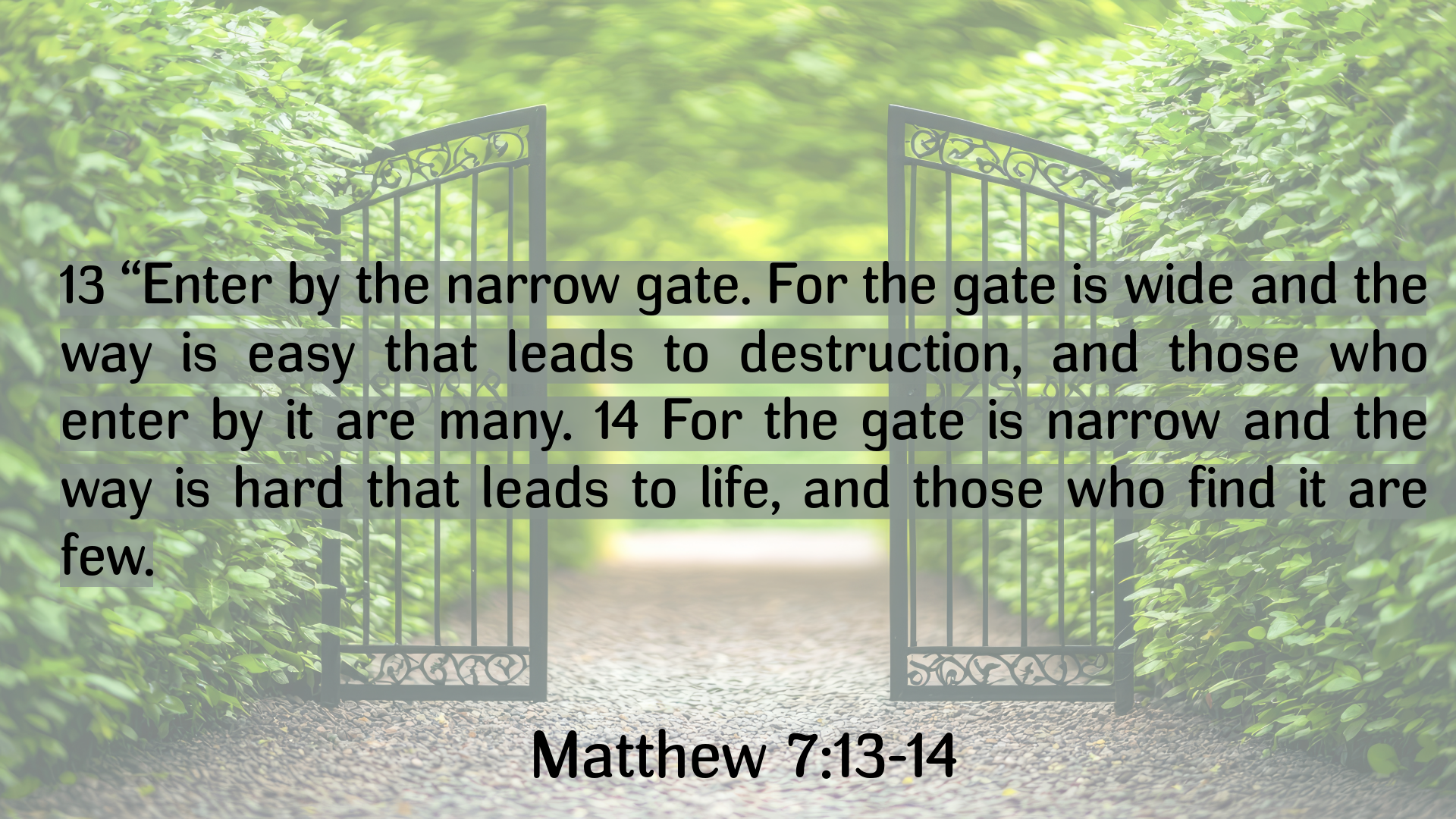
When we read these verses, the message seems clear: we want to enter through the narrow gate. But in practice, it's not that simple. The narrow gate must be sought out intentionally. The wide gate? You'll drift through it without even trying.
So let's pause: Are you living your life intentionally or on autopilot? Jesus is calling us to be active disciples. Passive Christianity isn't an option. Paul gives us a powerful image of what it looks like to pursue Jesus with purpose:
24 Do you not know that in a race all the runners run, but only one receives the prize? So run that you may obtain it. 25 Every athlete exercises self-control in all things. They do it to receive a perishable wreath, but we van imperishable. 26 So I do not run aimlessly; I do not box as one beating the air. 27 But I discipline my body and keep it under control, lest after preaching to others I myself should be disqualified. - 1 Corinthians 9:24-27
Jesus clearly marks the path He wants us to follow. But just because it's marked doesn't mean it's easy. Staying on the path takes effort, intention, and daily surrender. Thankfully, we're not asked to walk it in our own strength. We couldn't do it if we tried.
"But by the grace of God I am what I am, and his grace toward me was not in vain. On the contrary, I worked harder than any of them, though it was not I, but the grace of God that is with me." - 1 Corinthians 15:10
So now the question remains: Which path are you on?
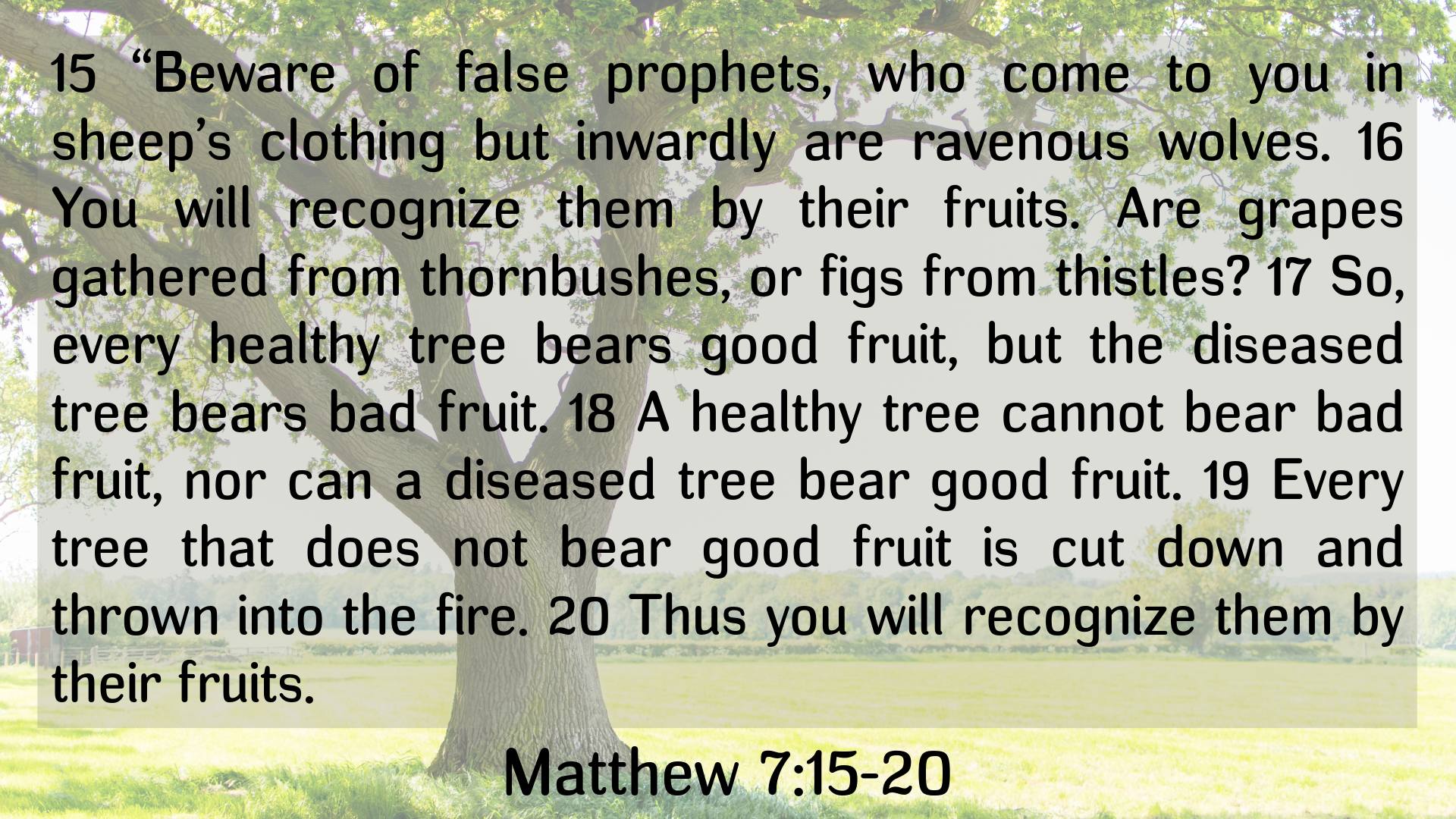
If you're serious about staying on the narrow path, you need to surround yourself with people who are also walking that road, and calling you to do the same. We all need teachers and guides in our lives, but Jesus warns us to use discernment. Not every voice deserves influence.
A true prophet tells people what they need to hear, even when it's uncomfortable. A false prophet tells people what they want to hear. We see this clearly in Jeremiah 6:14:
They have healed the wound of my people lightly,
saying, ‘Peace, peace,’
when there is no peace.
It's easy to be drawn to comforting messages that affirm what we already think or want to believe. This is where confirmation bias comes in—a natural tendency to favor information that supports our existing views and ignore what challenges us. The Apostle Paul warned Timothy of this very thing:
"For the time is coming when people will not endure sound teaching, but having itching ears they will accumulate for themselves teachers to suit their own passions." - 2 Timothy 4:3
So how do we recognize a false prophet? Jesus says it's by their fruit. Do the people you're listening to display the character of God in their lives? Are they living what they teach?
You have to be intentional about who you let speak into your life, because their fruit will eventually become your fruit. There's a saying: "You are the sum of the five people closest to you."
Are you surrounded by people you aspire to become?
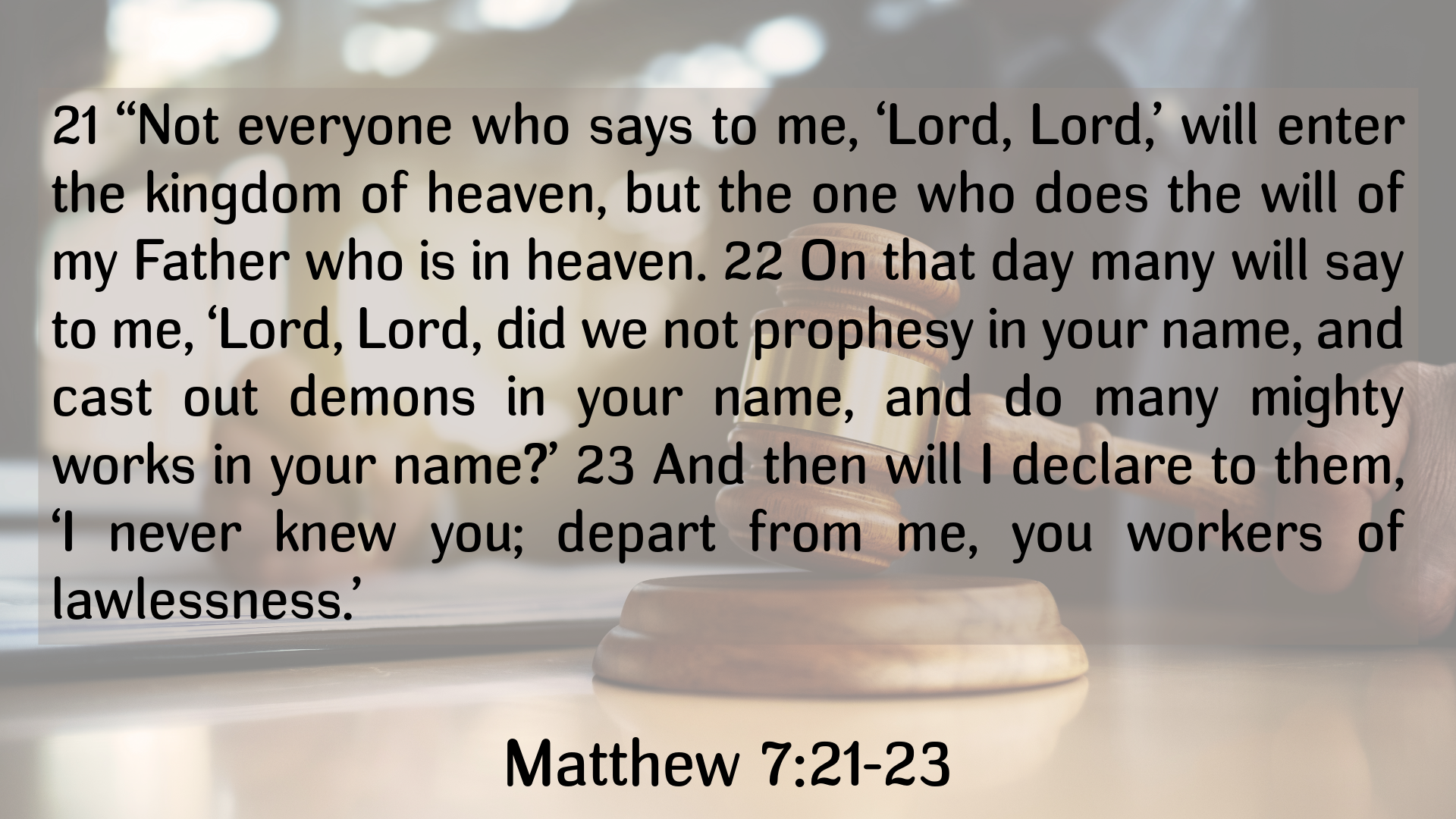
We've talked before about rewards for our actions and how easily we're drawn to the world's version of success (instant gratification, recognition, and results.) But Jesus doesn't measure success the way we do. Our rewards in Him are different, and so are His priorities. He's not impressed by what typically impresses us. And that matters, because he is the final Judge.
On judgment day, Jesus isn't conducting a job performance review. He's not checking to see whether we met certain spiritual metrics or exceeded expectations. What He's looking for is a life shaped by a transformed heart. (Once again, Jesus is emphasizing who we are over what we do.)
Being part of the "in" crowd—going to church, checking all the boxes, looking the part—doesn't necessarily mean we're walking the narrow path. There will be many who appear to do all the right things but miss what's the most important to Jesus.
What is He truly after? A visible, lasting transformation of character, one that glorifies God and reflects His Kingdom. It's not about the good deeds alone; it's about the heart behind them.
God is present in every part of life. When we seek Jesus in our daily experiences, we spend our lives growing in intimacy with Him.
What area of your life feels unrelated to God? How might you invite Him into it today?
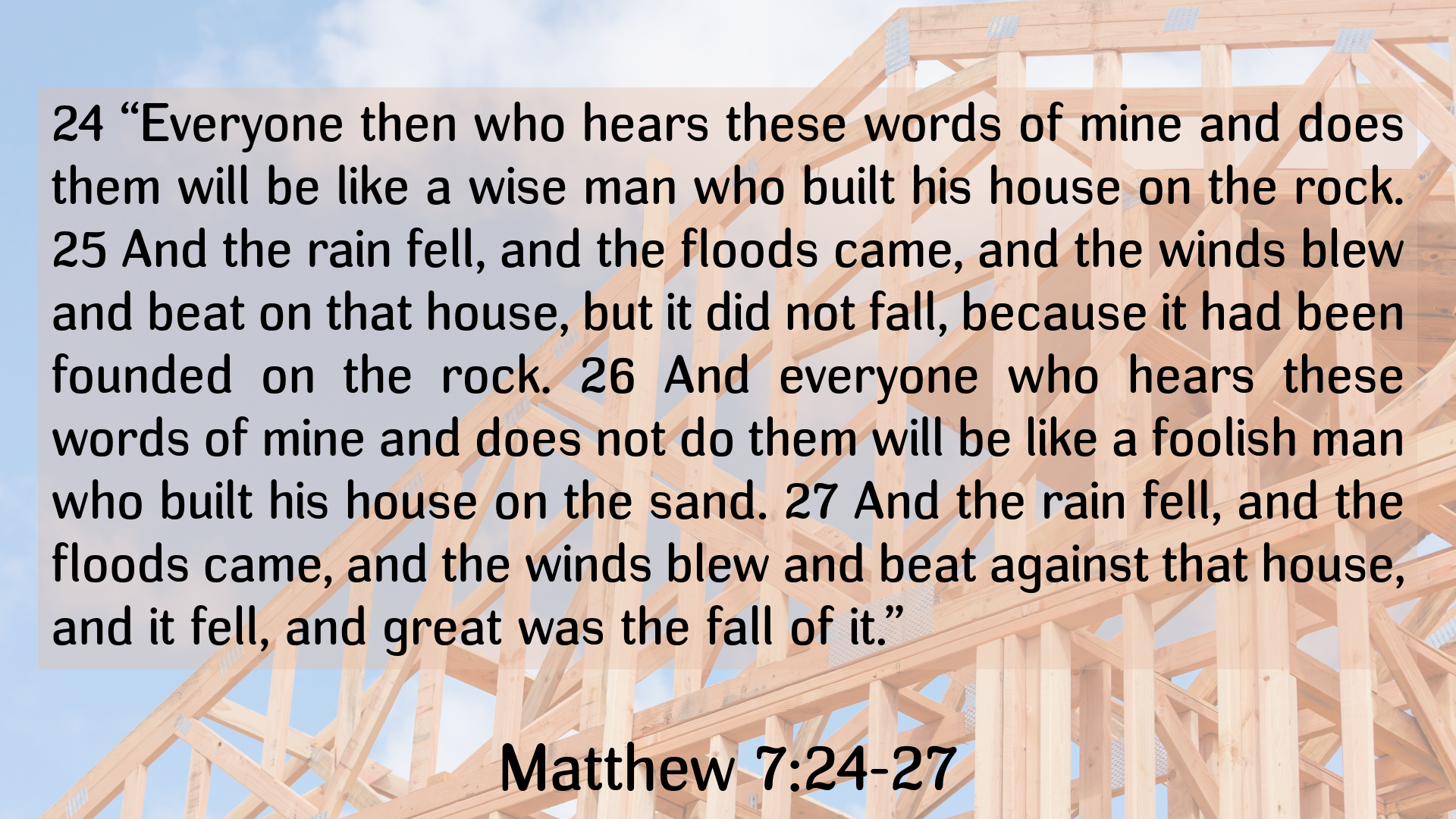
We've come to the final section of Jesus' Sermon on the Mount. In these verses, Jesus presents a powerful image of life construction. Just like a builder follows codes and best practices to create a solid structure, Jesus gives us a blueprint for a life that can withstand the storms.
In real construction, building codes might feel tedious or overly complex, but they exist for a reason. They protect what's being built. Similarly, Jesus outlines the "codes" for Kingdom living. It's up to us whether we'll follow them. And while He never promises a life free of storms, He does promise that with the right foundation, we'll be able to stand firm when they come.
So why doesn't everyone who hears Jesus' teaching choose to follow Him—especially when the reward is eternal life? Because the cost is high. Following Jesus means surrendering our lives, letting go of comfort, pride, and earthly treasure. But as Jesus reminds us, the reward is far greater.
Where in your life to you need to start a "renovation"? What needs to "die" so that something better can grow? What are you holding on to that Jesus is asking you to release?
Remember, building takes time. We won't master this overnight. If we commit to building on the foundation Jesus lays out in the Sermon on the Mount, we'll need patience, humility, and grace—for ourselves and others. Failure isn't the end of the story; it's part of the process, as long as we learn from it.
Jesus' sermon touches nearly every area of life. Trying to fix everything at once can feel overwhelming. But you don't have to do it all today. Start small. Ask God to reveal one area where He's calling you to grow, and begin there.
Take some time to truly reflect on this whole series. Don't let it end with, "That was a good study." This isn't about gaining knowledge, it's about building your life on Jesus. If we walk away unchanged, we've miss the point.
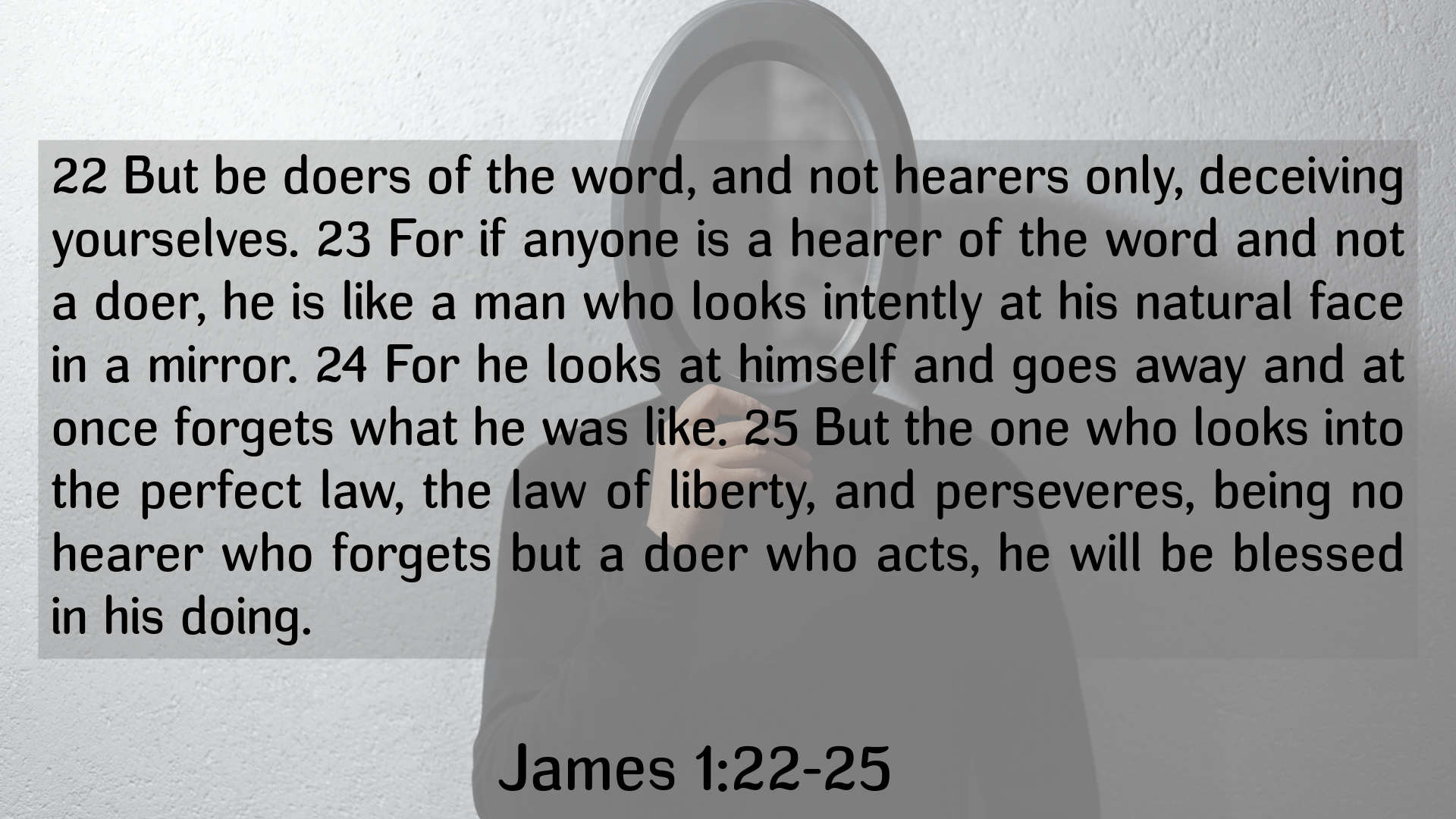
Jesus invites us to leave behind this dying world and step into the abundant life of His Kingdom. It won't be easy, but it'll be worth it.
Are you going to join Him?
31 So Jesus said to the Jews who had believed him, “If you abide in my word, you are truly my disciples, 32 and you will know the truth, and the truth will set you free.” - John 8:31-32
Cornerstone Impact Update
Is your work about serving others or proving yourself?
If you missed the last blog in our series through the book, "Every Good Endeavor," we dove into Genesis and Esther to explore how work can drift from purpose to pride. When work becomes all about us, things go off track.
See how two biblical stories reveal the dangers of selfish work and what God invites us into instead.
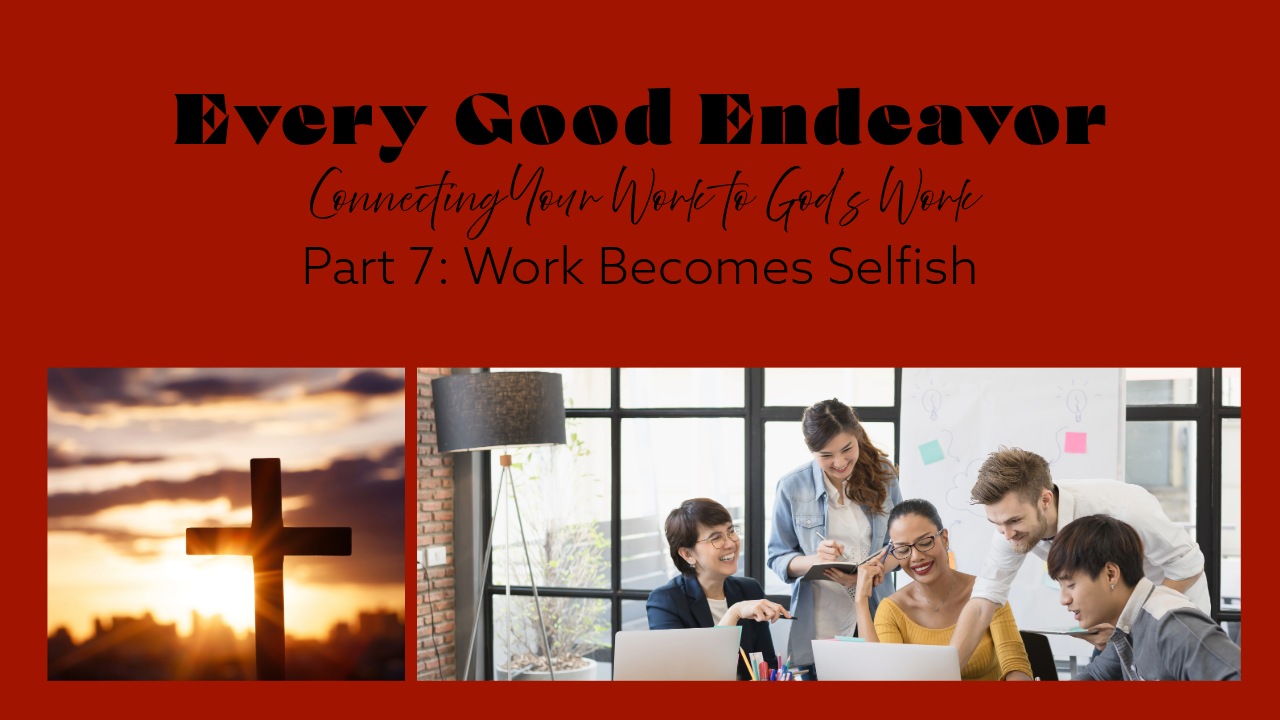
Eventide
Eventide's CEO Robin C. John's book, The Good Investor is now available. He started in a small village in India to founding a now multibillion-dollar investment firm to discover how investing can make the world rejoice. He shares a biblical perspective on investing and teaches how it can be a path to joy, a tool to create value, and a means to heal the world's brokenness.
If you're interested in this book, you can find more information here:

Inspire
Something our BRI partner, Inspire does really well is engaging with companies. They are making real progress in the fight against viewpoint-based financial discrimination. Through strategic engagement with major banks, including PNC, Regions, and Western Alliance, they're helping restore access and accountability in banking.
You can read the full story here:








